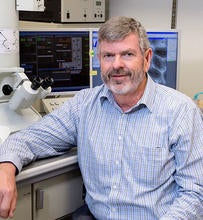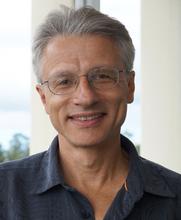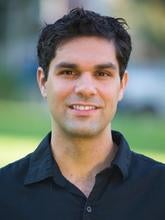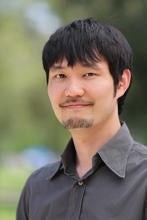Friday, May 31st, 2019
Plenary and Keynote Speakers
Scott C. Weaver, MS, PhD
John Sealy Distinguished University Chair in Human Infections and Immunity
John S. Dunn Distinguished Chair in Biodefense
Chair, Department of Microbiology & Immunology
Director, Institute for Human Infections & Immunity
Scientific Director, Galveston National Laboratory
Professor, Microbiology & Immunology and Pathology
https://microbiology.utmb.edu/faculty/scott-weaver-phd
Biography: Dr. Scott C. Weaver is a virologist and vector biologist who studies arthropod-borne viruses (arboviruses), their transmission by mosquitoes, and develops vaccines to control the diseases that they cause. His research encompasses the ecology and epidemiology of enzootic arbovirus transmission cycles, virus-mosquito interactions, pathogenesis, and emergence mechanisms of epidemic strains. These studies have had major impacts on understanding arboviral emergence including Venezuelan equine encephalitis, for which the international research groups he has led determined the ecological and evolutionary sources as well as mechanisms of epidemic strain emergence. Dr. Weaver’s recent studies have focused on chikungunya virus, its history of emergence from wildlife African nonhuman primate cycles, mosquito-adaptive evolution and its viral genetic constraints, as well as Zika virus, which is now associated with congenital malformations and Guillain Barré syndrome. He has also developed promising new vaccines for several of these arboviral diseases; the chikungunya vaccine developed in his laboratory, licensed to Takeda Pharmaceuticals and patented in 19 countries, is in late preclinical development. Dr. Weaver’s research has led to over 330 peer-reviewed research publications and over 100 reviews and book chapters. He has served as a mentor for 20 PhD students and 27 postdoctoral fellows, many who have developed highly successful independent scientific careers in academia and government. Among his many awards, Prof. Weaver has received the Walter Reed Medal from the American Society of Tropical Medicine and Hygiene and the Robert C. Gallo Award for Scientific Excellence from the Global Virus Network (GVN). He is a Fellow of the American Society of Tropical Medicine and Hygiene, the American Academy of Microbiology, and the National Academy of Inventors. He also Chairs the GVN’s Chikungunya and Zika Task Forces, and serves as an editor for several major tropical medicine and microbiology journals. At UTMB, Dr. Weaver is chair of the Department of Microbiology and Immunology, ranked second nationally among its peers for National Institutes of Health funding, and directs the Institute for Human Infections and Immunity, the Administrative hub for infectious disease programs and facilities such as the Galveston National Laboratory. He is also PI of the CDC funded Western Gulf Center of Excellence for Vector-borne Diseases and the NIH-funded World Reference Center for Emerging Viruses and Arboviruses.
Craig Montell, PhD
Duggan Professor and Distinguished Professor
Department of Molecular, Cellular, and Developmental Biology
University of California Santa Barbara
https://www.mcdb.ucsb.edu/people/faculty/craig-montell
Biography: Craig Montell received his in B.A. in Bacteriology from UC Berkeley, his Ph.D. in Microbiology from UCLA, and performed his postdoctoral fellowship with Dr. Gerald Rubin at UC Berkeley. Dr. Montell was on the faculty in the Department of Biological Chemistry at the Johns Hopkins School of Medicine from 1988 to 2013, whereupon he moved to the MCDB Department at UC Santa Barbara where he is a Distinguished Professor and a Duggan Professor. Dr. Montell is an elected Fellow of the AAAS and holds honorary doctorate degrees from the Baylor College of Medicine and Katholieke Universiteit (KU) in Belgium. For many years, his lab has focused on sensory signaling and behavior in Drosophila. As an outgrowth of this work, he discovered the founding member of the TRP family of channels, and recently uncovered many light-independent roles for rhodopsins in controlling the senses. He recently expanded his research program to include studies of ion channels and receptors that control behavior in Aedes aegypti.
Omar Akbari, PhD
Assistant professor
Division of Biomedical Science
University of California San Diego
https://biology.ucsd.edu/research/faculty/oakbari#pub-tab
Biography: In May of 2005, Omar S. Akbari received a B.S./M.S. in Biotechnology from the University of Nevada, Reno. In December of 2008, he received a Ph.D. in Cell and Molecular Biology from the University of Nevada, Reno where he studied the role cis-regulatory modules play in cellular identity along the anterio-posterior axis in developing Drosophila melanogaster embryos. In May of 2009, he joined the laboratory of professor Bruce A. Hay at the California Institute of Technology as a Postdoctoral Scholar to innovate synthetic biology of disease vectors. In summer of 2015, he became an Assistant Professor of Entomology in the Center for Infectious Disease Vector Research (CIDVR) at the University of California, Riverside. In fall of 2017, he joined the faculty as an Assistant Professor in the Cell and Developmental Biology Section, within the Division of Biological Sciences, and an active member of the TATA institute for Genetics and Society at the University of California, San Diego. In 2018 he co-founded and became a scientific advisor for Agragene a biotechnology-based startup in San Diego, CA.
Naoki Yamanaka, PhD
Assistant Professor of Entomology
Department of Entomology
University of California Riverside
https://entomology.ucr.edu/faculty/yamanaka.html
Biography: Naoki Yamanaka is an Assistant Professor in the Department of Entomology at the University of California, Riverside. After receiving his Ph.D. from the University of Tokyo in 2007, Dr. Yamanaka joined the laboratory of Dr. Michael O’Connor at the University of Minnesota, where he identified molecular mechanisms of how the insect steroid hormone ecdysone is released from steroidogenic cells in flies. At UC Riverside, his lab is focused on understanding how insect hormones control physiology and behavior. The lab’s long-term goal is to develop methodologies and tools to control different types of insects by manipulating their endocrine signaling pathways. Dr. Yamanaka is a recipient of the NIH Pathway to Independence Award (K99), the Pew Biomedical Scholars Award, and the NIH Director’s New Innovator Award (DP2).
Melody Li, PhD
Assistant Professor
Department of Microbiology, Immunology & Molecular Genetics
University of California Los Angeles
http://www.mimg.ucla.edu/people/man-hing-li/
Biography: Dr. Li is an Assistant Professor of Microbiology, Immunology and Molecular Genetics at UCLA. She received her B.S. from University of California, Irvine in 2006 and her Ph.D. in Microbiology from University of Washington, Seattle in 2011. Dr. Li’s thesis work elucidated the functional consequences of polymorphisms in the human APOBEC3H gene, which encodes for a cytosine deaminase that is antiviral against HIV-1. Dr. Li subsequently completed her postdoctoral work at The Rockefeller University with Dr. Peggy MacDonald and Dr. Charlie Rice where she studied the antiviral mechanism and regulation of the host interferon response targeting alphaviruses. Viral infection stimulates the production of type I interferons, resulting in the expression of a large and diverse repertoire of IFN-stimulated genes (ISGs). Her work on two ISGs, ZAP/PARP13 and IRF2, advances our understanding of host mechanisms that inhibit viral translation and promote clearance in the central nervous system. Dr. Li established her own laboratory at UCLA in 2017. A main focus of her laboratory is to elucidate the antiviral spectrum and mechanism of poly(ADP-ribose) polymerases (PARPs).
Symposium Schedule
11.30 AM -12.30 PM
Check-in
Badge and abstract booklet pick-up
Registration & Coffee
Poster set up
12.30 PM to 1.30 PM - Plenary Speaker
Scott C. Weaver, MS, PhD
John Sealy Distinguished University Chair in Human Infections and Immunity
John S. Dunn Distinguished Chair in Biodefense
Chair, Department of Microbiology & Immunology
Director, Institute for Human infections & Immunity
Scientific Director, Galveston National Laboratory
Professor, Microbiology & Immunology and Pathology
Title: History and Evolution of Urban Arbovirus Emergence
__________
1:30 PM to 2.00 PM
Craig Montell, PhD
Duggan Professor and Distinguished Professor
Department of Molecular, Cellular, and Developmental Biology
University of California, Santa Barbara
Title: Manipulating behavior in Aedes aegypti
__________
2.00 PM to 2.30 PM
Omar Akbari, PhD
Assistant professor
Division of Biomedical Science
University of California, San Diego
Title: Using CRISPR to Combat Human Disease Vectors
__________
2.30 PM to 3.00 PM
Naoki Yamanaka (UCR)
Naoki Yamanaka, PhD
Assistant Professor of Entomology
Department of Entomology
University of California, Riverside
Title: Steroid hormone transporter as a novel target for insect growth control
__________
3.00 PM to 3.30 PM
Melodi Hing Li, PhD
Assistant Professor
Department of Microbiology, Immunology & Molecular Genetics
University of California Los Angeles
Title: The host type I interferon response to alpha viruses
__________
3.30 PM to 3.45 PM
A selected short talk from abstracts
Title: TBA
3.45 PM to 4 PM
A selected short talk from abstracts
Title: TBA
4.00 PM to 6.00 PM
Poster presentation and Reception





